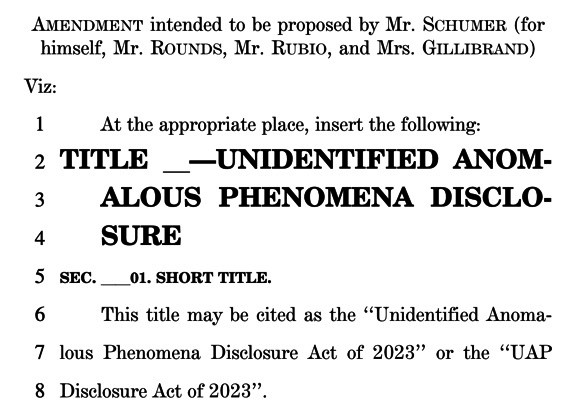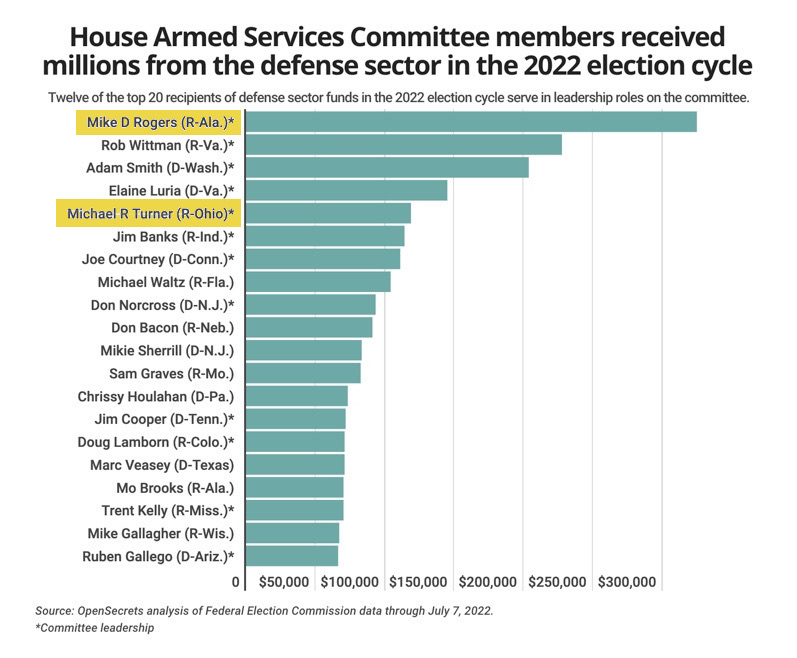
Image by Harli Marten on
Unsplash
All those who follow the unfolding events of the Disclosure process on the UAP/UFO phenomenon currently underway in U.S. institutional circles have learned with regret that the House-Senate
Conference - whose task it was to reconcile the two versions of the bill, i.e., the House and Senate versions in order to draft the final version - passed
a version of the Defense Activities Authorization Act for 2024
(aka NDAA24) where the so-called 'Schumer Amendment' to the bill was included, but in a largely mutilated and de facto severely depowered version.
But what was its significance for the Disclosure process and what led the amendment to be repelled with losses?
Let us now start taking first of all a step back to better understand the situation.
What the Schumer Amendment provided for
But what was its significance for the Disclosure process and what led the amendment to be repelled with losses?
Let us now start taking first of all a step back to better understand the situation.
What the Schumer Amendment provided for
The so-called
'Schumer Amendment'
to the NDAA24 bill had been proposed in the summer of 2023 by the Senate Majority Leader, Democratic Senator Chuck Schumer along with a bi-partisan group
of colleagues composed by Senators Rounds, Rubio and Gillibrand.
In its 64 pages are contained provisions of utmost importance to the advancement of the Disclosure process in institutional circles.
The title of the amendment is 'Unidentified Anomalous Phenomena Disclosure'.
The most important points of this complex amendment are:
In its 64 pages are contained provisions of utmost importance to the advancement of the Disclosure process in institutional circles.
The title of the amendment is 'Unidentified Anomalous Phenomena Disclosure'.
The most important points of this complex amendment are:
- The creation of a commission, called UAP Records Review Board, to examine and declassify any governative document related to UAP/UFOs. This commission, composed of at least nine members of various specialties,
was to have the status of an independent agency with broad powers reporting directly to the U.S. President, who would hold the unappealable power of veto.
Note that this would have been the first case ever in which the U.S. President would have been involved in UAP/UFO matters.
These specific set of regulations are of utmost importance to the Disclosure process, as they strike at the very core of the problem that plagues it, which is the classification - that is, secrecy - of all UAP/UFO information. - The introduction of measures to strengthen immunity for witnesses or whistleblowers willing to provide information on UAP/UFO programs (especially unreported ones) to this Commission.
- The introduction of the 'Presumption of immediate disclosure' of all UAP/UFO information in the possession of the U.S. government.
- The creation of a unified registry at the National Archives for all UAP/UFO information and its transmission to the National Archives by any governmental body that may be in possession of it.
- The granting to the U.S. government of the power of expropriation [Eminent Domain] over any technological and biological artifacts that should be found in private hands. Note the mention of expropriation referring not only to technological but also biological artifacts.
What is left of the amendment
Residue no.1 - limitation of funds for non-notified programs:
Section 1687 of Title XVI, Subtitle E provides the limitation in the use of funds for non-notified UAP programs. Simply put, if UAP research programs are not previously notified by the Secretary of Defense to the appropriate House and Senate committees, they will not be eligible for any funding.
One comes to wonder what should then happen to those unnotified programs that, as David Grusch recently testified and as has long been argued by Dr. Steven Greer, are funded through diversion of funds. Such illegally conducted and equally illegally funded programs very likely will not be affected at all by these provisions, precisely because they are 'phantom' programs that do not formally exist as such.
It seems reasonable to call these regulations of little effect in this highly depowered context.
Residue no.1 - limitation of funds for non-notified programs:
Section 1687 of Title XVI, Subtitle E provides the limitation in the use of funds for non-notified UAP programs. Simply put, if UAP research programs are not previously notified by the Secretary of Defense to the appropriate House and Senate committees, they will not be eligible for any funding.
One comes to wonder what should then happen to those unnotified programs that, as David Grusch recently testified and as has long been argued by Dr. Steven Greer, are funded through diversion of funds. Such illegally conducted and equally illegally funded programs very likely will not be affected at all by these provisions, precisely because they are 'phantom' programs that do not formally exist as such.
It seems reasonable to call these regulations of little effect in this highly depowered context.
Residue no.2 - centralized preservation in the National Archives:
In Sections 1841 through 1843 of Title VXIII, Subtitle C, the provision is retained that copies of all governmental UAP records in the possession of any governmental agency must be sent by the originating agency to the National Archives, which is required to preserve and maintain these records by creating a special register of them.
In the absence of the Declassification Commission, the obligation to control, identify and organize these UAP records and decide which ones can be made public remains with the originating governmental organizations. All such records must be made public 25 years after their production, with the U.S. President retaining the power to postpone their declassification for national security reasons.
It is noteworthy in the present context that the definition of Unidentified Anomalous Phenomena [UAP] contained in the NDAA bill for Fiscal Year 2023 is retained, essentially described as flying or submerged objects or devices that are not readily identifiable and exhibit anomalous characteristics of behavior or performance, a much narrower and watered-down definition than that contained in the Schumer Amendment.
To summarize, these regulations provide for the creation of a collection of all government UAP records, which is certainly a useful thing, but -in the absence of a declassification commission- they leave broad powers to the originating government agencies regarding their identification and especially declassification.
To sum up, it may well be said the Schumer Amendment comes out of the Reconciliation Conference largely mutilated and, in fact, almost nullified.
Comments
At this point, the first comment that can be made is that with this scuttling of the Schumer Amendment, the institutional process of Disclosure has suffered a not insignificant slowdown, though not quite a setback, and in any case its progress is bound to be slowed down somewhat.
But of one thing we can be absolutely certain: this episode has dramatically proven that there are significant,solid UAP/UFO-related interests that the Schumer Amendment regulations would have harmed.
However indirect, the willingness to eliminate the most important regulations, namely the government's power of expropriation, the Declassification Commission and enhanced protection for whistleblowers, appears to be evidence that:
- Large defense companies are likely to possess technological artifacts from UAP/UFOs.
- They have concrete and substantial interests related to such artifacts, likely pertaining to retroengineering operations and especially the profits they can make from them.
- Large defense companies, as well as certain agencies in the military and intelligence communities, do not like these issues to become public knowledge.
Now, I wish to be very clear on this point. Personally, I always try to think positively and I definitely don't like to think/speak ill of others, or to put people in a bad light.
But in this case it seems pretty clear that the behavior of these representatives and senators in this context is directed more at protecting the interests of their defense funders than anything else.
From this, and from the accounts of many people including most recently David Grusch, it appears safe to assume that:
According to many different sources and particularly Chris Sharp's excellent article on liberationtimes.com, these are the gentlemen to whom we apparently owe the sinking:
For sure, the amendment has been dumbed down, leaving only a few traces of what it was, and gone are all the most important expectations it carried with it, but all this has not been in vain.
Picking up on Chris Sharp's comment in his excellent article on liberationtimes.com, Schumer's initiative can be likened to an aerial reconnaissance mission to ascertain the presence of an enemy and assess size and deployment of its forces.
Yes, Pilot Schumer was shot down but his sacrifice was not in vain because with his initiative he demonstrated two very important issues:
To use a phrase dear to Luis Elizondo, I would like to remind readers that Disclosure is not an event, it is a process.
For now, this process has suffered a severe blow, but let us never forget the basic point of the whole discourse:
The UAP/UFO Pandora's Box is now completely opened and there is no way to close it again.
He who has ears to hear, let him hear.
Conclusion
As we move toward the conclusion of this article, it is worth noting with Chris Sharp of liberationtimes.com that it would appear that the Schumer amendment would somehow have been previously coordinated with the White House, as its rules on the Declassification Commission would directly involve the President of the United States in matters pertaining to UAP/UFOs. If this is true, developments as unexpected as they are important would not be ruled out.
And I would like to conclude this article with heartfelt thanks to the initiators of this initiative, first and foremost Senator Chuck Schumer and colleagues Rounds, Rubio, and Gillibrand, who have concretely demonstrated that when there is political will great results can be achieved.
the UAP/UFO phenomenon affects the entire planet and its people.
Let us never forget that.
___________________________
From this, and from the accounts of many people including most recently David Grusch, it appears safe to assume that:
- Manifestations of the UAP/UFO phenomenon actually exist in the form of objects of material nature and technological make.
- The technological aspect of such manifestations of the phenomenon is extremely attractive to the military.
- Certain branches of the U.S. government are in possession of technological artifacts from UAP/UFOs and are availing themselves of the cooperation/collusion of large defense corporations to which they would distribute them for the purpose of retroengineering them (and of course, making profits).
- Large defense corporations have built with time significant, solid interests related to operations on such artifacts which they have no intention of giving up.
- This interaction of certain governmental bodies with private entities must have at least some aspects of a certain murkiness that no one wishes to make public.
According to many different sources and particularly Chris Sharp's excellent article on liberationtimes.com, these are the gentlemen to whom we apparently owe the sinking:
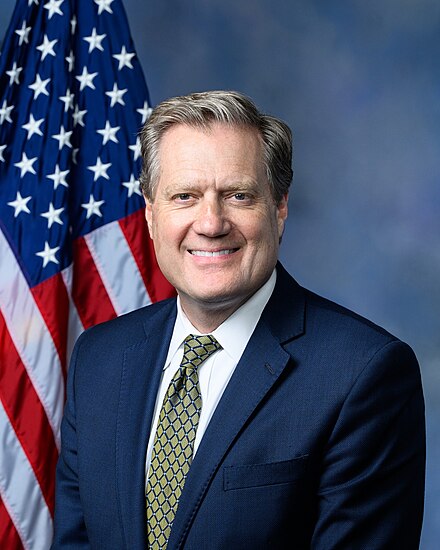
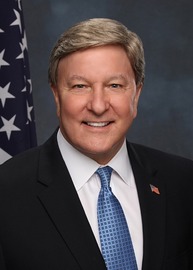
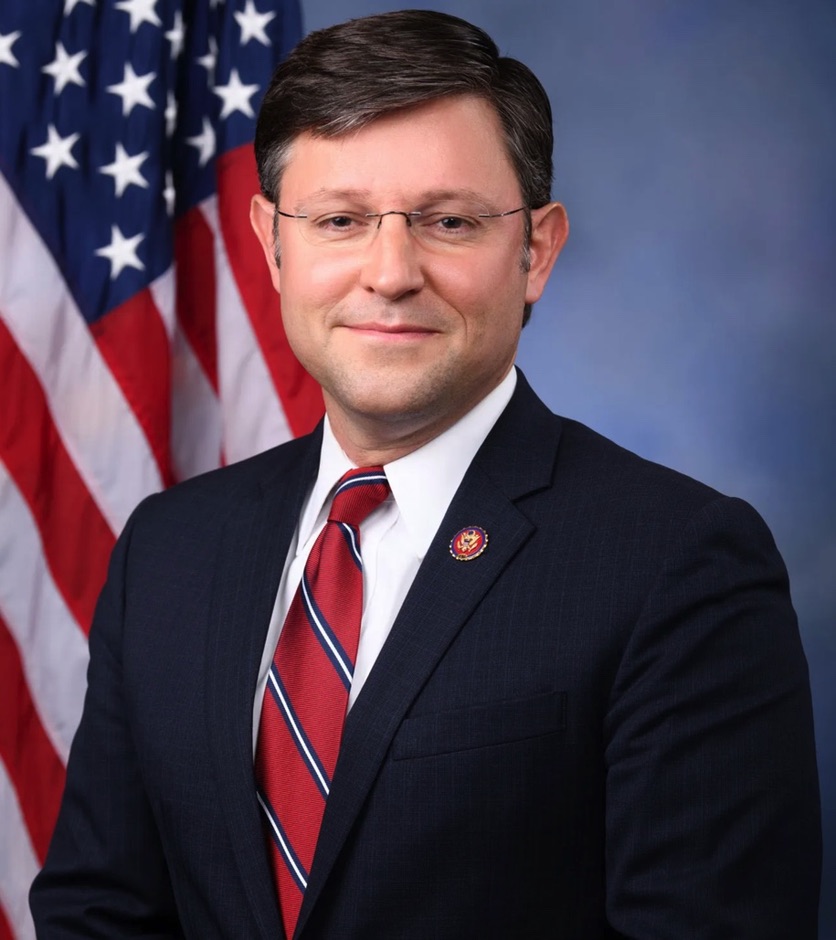

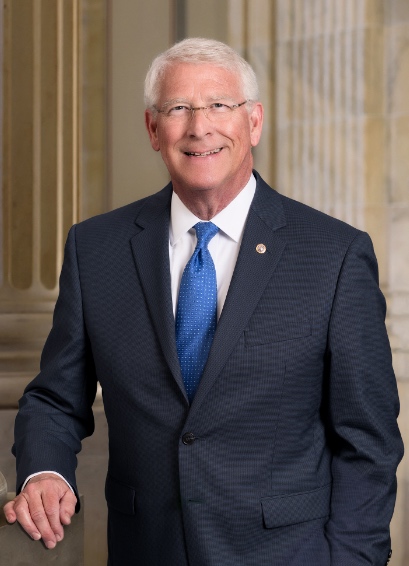
- Representative Mike Turner - Chair of the House Intelligence Committee - Image from https://intelligence.house.gov/about/chairman.htm
- Representative Mike Rogers - Chair of the House Armed Services Committee - Image from https://mikerogers.house.gov/about/
- Representative Mike Johnson - Speaker of the House - Image from https://www.britannica.com/biography/Mike-Johnson
- Senator Mitch McConnell - Minority Senate Leader - Image from https://www.mcconnell.senate.gov/public/
- Senator Roger Wicker - Ranking Member of the Senate’s Armed Services Committee. - Image from https://www.wicker.senate.gov/biography
For sure, the amendment has been dumbed down, leaving only a few traces of what it was, and gone are all the most important expectations it carried with it, but all this has not been in vain.
Picking up on Chris Sharp's comment in his excellent article on liberationtimes.com, Schumer's initiative can be likened to an aerial reconnaissance mission to ascertain the presence of an enemy and assess size and deployment of its forces.
Yes, Pilot Schumer was shot down but his sacrifice was not in vain because with his initiative he demonstrated two very important issues:
- It has shown that the Disclosure process in U.S. institutions and more generally transparency about the UAP/UFO phenomenon do indeed have an enemy.
- It has identified the size and deployment of the forces of this enemy.
To use a phrase dear to Luis Elizondo, I would like to remind readers that Disclosure is not an event, it is a process.
For now, this process has suffered a severe blow, but let us never forget the basic point of the whole discourse:
Conclusion
As we move toward the conclusion of this article, it is worth noting with Chris Sharp of liberationtimes.com that it would appear that the Schumer amendment would somehow have been previously coordinated with the White House, as its rules on the Declassification Commission would directly involve the President of the United States in matters pertaining to UAP/UFOs. If this is true, developments as unexpected as they are important would not be ruled out.
And I would like to conclude this article with heartfelt thanks to the initiators of this initiative, first and foremost Senator Chuck Schumer and colleagues Rounds, Rubio, and Gillibrand, who have concretely demonstrated that when there is political will great results can be achieved.
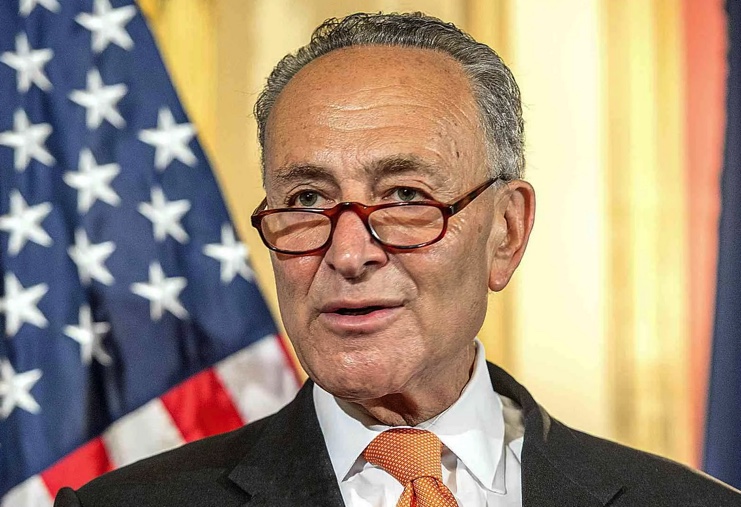
Senator Chuck Schumer - from thedebrief.org
Let us never forget that.
___________________________
Note: On December 23, the "Residue Number 2" section was rewritten as it contained some inaccuracies. On March 19, some rephrasing applied at the Comments section.


